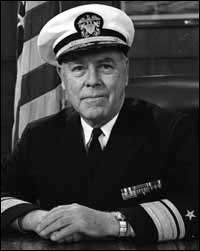Shorts 2: Princess Ivanka, War Games, Trump President for Life, &c
Sunday, March 4th, 2018[ by Charles Cameron — if Paula White is Christian, must be the season of the witch ]
.
Princess (Jared’s) Bride:
It seems that beauty allied with power can add up to (almost) royalty. Consider Princess Ivanka. From the LA Times, Ivanka Trump: Born to legitimize corruption and make the shoddy look cute:
She has the same magic touch with the multitudes of flesh-and-blood rogues who flock to her for redemption. It’s Ivanka who first brought Gen. Michael “Lied to the FBI” Flynn into the administration, according to the New Yorker; she praised him for his “amazing loyalty” and offered him his choice of positions at a transition-team meeting. One person present said, “It was like Princess Ivanka had laid the sword on Flynn’s shoulders and said, ‘Rise and go forth.'”
The laying on of that princess sword seems to be Ivanka’s favorite pastime. In 2006, when she was 25, she toured Moscow with Felix Sater, who in 1998 pleaded guilty to a $40-million stock fraud scheme run by the Russian mafia. She also collaborated with the Soviet-born businessman Tamir Sapir, whose top aide in 2004 pleaded guilty to a racketeering conspiracy with the Gambino crime family.
Redemption, did you get that?
And what a relief to get back to the Gambinos!
**
War Games:
Sources:
NYT, U.S. Banks on Diplomacy With North Korea, but Moves Ahead on Military Plans Twitter, Wargames with @avantgame – at Jewish Community Center
Comment:
Wow, I’m impressed. I’m not quite sure what Dr Jane McGonigal is up to with her war games, but the generals who participated in the table-top exercise in Hawaii simulating a war with North Korea might like to try them.. Gen. Mark A. Milley, the Army’s chief of staff, and Gen. Tony Thomas, the head of Special Operations Command.
**
Immortal Trump?
Trump on China’s Xi consolidating power: ‘Maybe we’ll give that a shot some day’
In the closed-door remarks, a recording of which was obtained by CNN, Trump also praised China’s President Xi Jinping for recently consolidating power and extending his potential tenure, musing he wouldn’t mind making such a maneuver himself.
“He’s now president for life. President for life. No, he’s great,” Trump said. “And look, he was able to do that. I think it’s great. Maybe we’ll have to give that a shot some day.”The remarks, delivered inside the ballroom at his Mar-a-Lago estate during a lunch and fundraiser, were upbeat, lengthy, and peppered with jokes and laughter
That’s all fun and games. Wait till Xi Jinping goes full Mao:
Oh, ah — the immortality’s not just for Mao, it’s for all of us. ANd Lifton’s thesis is a meditation on the one and the many!
Lifton undertook his book to supply an ingredient which he felt was lacking in current accounts of the Cultural Revolution: namely the link between psychological phenomena and historical framework, between the feeling of individuals and the events taking place around them.
Briefly, Lifton argues that individuals relate to history and to other men by means of symbols. The symbols themselves vary in response to the historical context–different events make different symbols relevant. But their ultimate purpose is to give men a sense of connection with their past and future: to provide a sense of unity with other men and with history–a sense of immortality.
**
Christian Today:
Trump adviser Paula White says send money to her for blessings – or face divine consequences
>onald Trump’s spiritual adviser Paula White has told people to send her money – ideally their January salary – in order to receive blessings, or face divine consequences. [ .. ]
‘Right now I want you to click on that button, and I want you to honour God with his first fruits offering,’ she said in the video.
‘If God doesn’t divinely step in and intervene, I don’t know what you’re going to face – he does,’ she said. [ .. ]
Explaining the theory behind her appeal for cash, she said: ‘January is the beginning of a new year for us in the Western world. Let us give to God what belongs to him: the first hours of our day, the first month of the year, the first of our increase, the first in every area of our life. It’s devoted…The principle of first fruits is that when you give God the first, he governs the rest and redeems in.’
!!
**
By way of explanation?
When I look over my shoulder What do you think I see?
Some other cat looking over His shoulder at me
And he’s strange, very very very strangeMust be the season of the Witch!





 the brainchild of the carnivorously ambitious strategic and political genius Mao Zedong who gave meaning to the now familiar bumper sticker that insurgency is ’80 per cent political and 20 per cent military’. Mao’s innovation was to figure out what to fill that 80 per cent with: industrial scale political subversion by which he was able to harness the latent power of an aggrieved population to the wagon of political change, to whit the victory of the Chinese Communist Party in the Chinese Civil War which ended with the proclamation of the People’s Republic of China in 1949
the brainchild of the carnivorously ambitious strategic and political genius Mao Zedong who gave meaning to the now familiar bumper sticker that insurgency is ’80 per cent political and 20 per cent military’. Mao’s innovation was to figure out what to fill that 80 per cent with: industrial scale political subversion by which he was able to harness the latent power of an aggrieved population to the wagon of political change, to whit the victory of the Chinese Communist Party in the Chinese Civil War which ended with the proclamation of the People’s Republic of China in 1949


